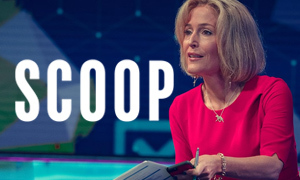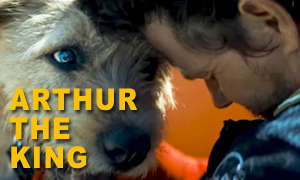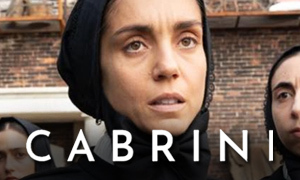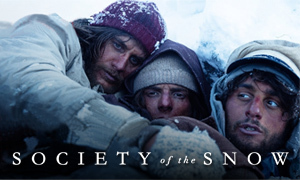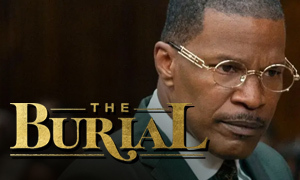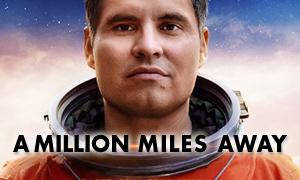The Fabelmans: History vs. Hollywood
Gabriel LaBelle
Born: 2003
Birthplace:
Vancouver, Canada
Steven Spielberg
Born: December 18, 1946
Birthplace: Cincinnati, Ohio, USA
Michelle Williams
Born: September 9, 1980
Birthplace:
Kalispell, Montana, USA
Leah Spielberg
Born: January 12, 1920
Birthplace: Cincinnati, Ohio, USA
Death: February 21, 2017, Los Angeles, California, USA
Paul Dano
Born: June 19, 1984
Birthplace:
New York City, New York, USA
Arnold Spielberg
Born: February 6, 1917
Birthplace: Cincinnati, Ohio, USA
Death: August 25, 2020, Los Angeles, California, USA
Is The Fabelman's based on a true story?
The Fabelmans was billed as a "semi-autobiographical" movie based on the early life of the film's director and co-writer, Steven Spielberg, who was the inspiration for the Sammy Fabelman character. Like Steven Spielberg was during his youth, Sammy is an aspiring filmmaker who is drawn to making movies because it allows him to regain some control over his unstable life.
The coming-of-age film presents an idealized and filtered version of Steven Spielberg's childhood and teenage years. It is made up of semi-fictionalized moments that, while inspired by true events, represent how the adult Spielberg now understands his youth, rather than how a more naive and younger Spielberg lived it. It is the therapeutic endeavor of a filmmaker trying to understand his complicated relationship with his parents and make peace with the childhood that shaped him, which informed so much of his work. As we'll explain below, the movie is still surprisingly accurate from what we know about Steven Spielberg's youth.
Did Steven Spielberg have three sisters like Sammy Fabelman does in the movie?
Yes. In further answering the question, "Is The Fabelmans based on Steven Spielberg's life?" we learned that like in the film, Steven Spielberg has three sisters who are all younger. Their names in real life are Anne, Sue and Nancy. It's true that he often cast them in his early 8mm films that he shot around the house and neighborhood, dressing them up like Sammy does in the movie for their roles in a stagecoach Western and wrapping them in toilet paper for a mummy movie. It's also true that they weren't the easiest to work with.
Was Steven Spielberg's father a workaholic electrical engineer like Sammy Fabelman's father in the movie?
Yes. Sammy's father, Burt (Paul Dano), is a straight-edged electrical engineer in the movie who spends much of his time at work. The Fabelmans fact-check confirms that this is in line with what we know about Steven Spielberg's own father, Arnold Spielberg, an electrical engineer who worked in the field of computer development and helped to create real-time data acquisition and recording, citing his most significant contribution as being the first computer-controlled "point of sale" cash register. "I missed my dad a lot growing up, even though we were together as a family. My dad was really a workaholic. And he was always working," Steven told 60 Minutes in 2012.
Was Steven Spielberg's mother a pianist?
Yes. In the movie, Sammy Fabelman's mother, Mitzi (Michelle Williams), is a talented pianist. She is emotional and imaginative, whereas her husband, Burt (Paul Dano), is even-keeled and logical. "My mom didn't parent us as much as she sort of big-sistered us. She was Peter Pan. She refused to grow up," Spielberg said in a 2012 60 Minutes interview. The Fabelmans true story confirms that Steven Spielberg's mother, whose real name was Leah, was a concert pianist who put her career on hold to raise a family. The piano heard in John William's score for The Fabelmans is an obvious tribute to her. She passed away in 2017.
Did Steven Spielberg's family move to Arizona when he was a child?
Yes. Steven Spielberg's father, Arnold Spielberg (1917-2020), was an electrical engineer. He got a job with RCA and the family relocated to Haddon Township, New Jersey, where Steven attended a Hebrew school from 1953 to 1957, before the family moved to Phoenix, Arizona, where much of The Fabelman's takes place. Like in the movie, they would move again during Steven's senior year in high school, this time to the affluent town of Saratoga, California. He graduated from Saratoga High School in 1965.
Was the first movie that Steven Spielberg ever saw The Greatest Show on Earth in 1952?
Yes. "The first movie I ever saw was The Greatest Show on Earth, as depicted," Spielberg said during a Q&A at the Toronto International Film Festival (TIFF). He was six years old.
Was Steven Spielberg's first home movie a train crash involving his Lionel Trains?
Yes. In The Fabelmans' opening scene, a young Sammy is about to see his first movie, Cecil B. DeMille's circus drama The Greatest Show on Earth. He is emotionally jarred by a train crash sequence in the movie and goes home and recreates it with his toy trains in his room. His mother, Mitzi (Michelle Williams), then suggests he film the scene he's created so he can view it over and over. In researching how accurate is The Fabelmans, we discovered that this is taken directly from Steven Spielberg's life. His first homemade 8mm movie involved a crash with his Lionel Trains when he was 12 years old.
"I was really traumatized by that movie, with the train wreck," Spielberg told the crowd during a TIFF Q&A. "I mean, actually, I recreated the train wreck just the way Sammy does on 8mm film because I had to look at that over and over again to get it out of my system."
The Fabelmans gives his first homemade movie a modern-day cinematic glow-up that helps to more effectively tap into the magic young Sammy is enveloped by.
Are the other home movies Sammy shoots in the film based on Steven Spielberg's home movies from his youth?
Yes. The home movies that young Sammy Fabelman shoots in the movie are faithful recreations of Steven Spielberg's boyhood home movies, albeit here they are recreated with modern filmmaking technology. The downside with regard to historical accuracy is that Sammy's early films look a lot more polished than Spielberg's were in real life.
"And I made all the behind-the-scenes stuff in this movie much better than the actual 8mm films I shot when I was Sammy's age, much better in this," Spielberg admitted during a TIFF Q&A. "I had a chance to do it over. It was a do-over. It was great to do it over. It was fantastic."
Spielberg purists will likely recognize the roots of a few of his signature techniques in these early films, including showing a face reacting to something shocking before cutting to what the person is seeing. Spielberg is said to have made 15 to 20 8mm "adventure" films during his early teen and high school years.
Was Steven Spielberg in the Boy Scouts?
Yes. The Fabelmans true story reveals that similar to Sammy Fabelman in the movie, we know that while he was living with his family in Arizona, Steven Spielberg was active in his local Scout troop. He rose to the highest rank, Eagle Scout. In order to get his photography merit badge in 1958, he made his nine-minute, 8mm film The Last Gunfight.
Did a teenage Steven Spielberg date a Christian girl who tried to convert him to Christianity?
We know that Steven Spielberg grew up in an Orthodox Jewish family, so details in the movie like the family not decorating the house for Christmas are very much in line with his real-life upbringing. "I was embarrassed, I was self-conscious, I was always aware I stood out because of my Jewishness," Spielberg told The New York Times in 1993. It's also true that as his family moved to various neighborhoods, they found themselves to be the only Jewish family on the block. During his adolescence, Spielberg had grown distant from Judaism.
In the film, Sammy's Christian high school girlfriend, Monica Sherwood (Chloe East), tries to lure Sammy away from Judaism with Jesus and prayer, going as far as having him try to inhale Jesus prior to a makeout session. She appears to have been inspired by a real person, though Spielberg has rarely spoken about his high school girlfriends and her true identity is unknown.
Did a young Steven Spielberg shoot a 40-minute war film with his friends?
Yes. The homemade movies Sammy (Gabriel LaBelle) makes are recreated almost exactly from the ones Spielberg made in real life. In answering the question, "How accurate is The Fabelmans?" we learned that it's true that when he was 13, Spielberg used his 8mm camera to shoot a 40-minute war movie with his friends titled Escape to Nowhere, which won first prize in a statewide competition. This sequence in The Fabelmans is reminiscent of the kid filmmakers in the Spielberg-produced movie Super 8 (2011).
It's also hard not to recognize the influence that Escape to Nowhere might have had on Spielberg's Normandy beach sequence in Saving Private Ryan (1998). In fact, Spielberg said that he showed Escape to Nowhere to the entire cast of Saving Private Ryan when they were shooting the Omaha Beach scene in Ireland. "They all gathered around the monitor, and I wanted to show them this old movie I made when I was like 16 years old, and I think to an actor, they felt, 'What are we doing in Ireland with this guy? Is it gonna look... It can't look like that! Why's he showing this to us?'"
Is Sammy Fabelman's Uncle Boris based on Steven Spielberg's real-life uncle?
In the movie, it is revealed that actor Judd Hirsch's character, Uncle Boris, had worked in Hollywood for a while, leaving him with a jaded view of the film industry. "It will tear your heart out and leave you lonely," he states. Uncle Boris is the black sheep of the family, but he shares Sammy's adventurous and passionate spirit. The Fabelmans fact-check reveals that the character was indeed inspired by Spielberg's real-life uncle, who was also called Uncle Boris, but he was fictionalized to a significant degree. Of his actual uncle, who he only met twice in his life, Spielberg said that his accent was so thick he never understood a word he said. Spielberg largely left it in Judd Hirsch's hands to decide how he wanted to portray Uncle Boris.
It is true that Steven Spielberg's uncle worked for the circus. "He scared everybody in the family," said Spielberg, "because he worked for Ringling Bros. Barnum and Baily Circus, and he was a lion tamer, and he had a crazy career."
In one scene in the film that is very much a reflection on the struggles in Steven Spielberg's own life, Boris tells Sammy about the push and pull between art and family, trying to balance one's passion with one's obligation. It is a theme that is prominent in Spielberg's early movies, including 1977's Close Encounters of the Third Kind (Spielberg reportedly later said that if he could do that movie over, he would've had Richard Dreyfuss' character stay with his family at the end instead of leaving with the aliens).
Did a teenage Steven Spielberg meet filmmaker John Ford?
Yes. In answering the question, "Is The Fabelmans based on a true story?" we learned that this scene is taken directly from Steven Spielberg's life. Like in the movie, he met director John Ford at age 15. Steven was in Los Angeles visiting his second cousins, one of whom had a contact in the TV business. He went to meet the contact, but since Steven wanted to make movies, the individual told him he should go across the hall and talk to John Ford, who the person referred to as "Jack" Ford.
Steven waited for Ford to come back from lunch and was given five minutes with the director in his office. The meeting unfolded almost exactly like it does in The Fabelmans, complete with Ford arriving with perfect red kiss marks all over his face and then lecturing young Steven on the placement of the horizon in several pictures on the wall. "I can say that the John Ford scene happened to me word for word, nothing more nothing less," he said during a TIFF Q&A. Check out the video of Steven Spielberg telling the story of meeting John Ford.
Did Steven Spielberg's mother bring home a monkey?
Yes. In the movie, Mitzi Fabelman (Michelle Williams) brings home a monkey to be a household pet. In a Hollywood Reporter interview, Steven Spielberg talked about his real-life mother, Leah, bringing home the monkey. "[It] was a grand distraction, but it was also a therapeutic companion for my mom, who was really at that time in our lives going through a major depression," he said. Another moment that might seem fictional but is based on something Spielberg's mother actually did is when Mitzi climbs the tree on the camping trip.
Did Steven Spielberg nearly abandon filmmaking before his career got started?
Yes. In researching The Fabelmans true story, we learned that after seeing David Lean's Lawrence of Arabia when he was 16, Steven was so impressed by the film that he began to have doubts as to whether he could ever make a movie that good, especially from a directorial standpoint. "When the film was over, I wanted to not be a director anymore," he stated in the HBO documentary Spielberg," because the bar was too high. ... I had such a profound reaction to the filmmaking, and I went back and saw the film a week later. I saw the film a week after that, and I saw the film a week after that, and I realized that there was no going back. This was going to be what I was gonna do or I was gonna die tryin'. But this was going to be the rest of my life."
Did Steven Spielberg write and direct his first independent film while in high school?
Yes. In determining to what degree The Fabelmans is based on Steven Spielberg, we confirmed that in 1963 at age 17, he wrote and directed the 140-minute science fiction adventure film Firelight. His sister, Nancy Spielberg, played one of the main characters, Lisa. The film, which had a budget of $500, was mainly funded by his father, Arnold Spielberg. It screened at a local Phoenix theater for one evening. Attendees paid a dollar a ticket. Spielberg himself counted the receipts. "Five hundred people came to the movie and I think somebody probably paid two dollars, because we made one dollar profit that night, and that was it," he later recalled.
While only three minutes and forty seconds of the film has ever been made public, its plot is rather well known, in part because it inspired his third major studio film, Close Encounters of the Third Kind (1977).
Was Steven Spielberg the victim of antisemitic bullying?
Yes. Similar to Sammy Fabelman in the movie, Steven Spielberg has been open about the fact that he was bullied in high school because he wasn't good at sports, he was an outsider, and he was Jewish. "I was a nerd in those days. Outsider. Like the kid that played the clarinet in the band and orchestra, which I did," he recalled in a 60 Minutes interview.
He said that the semester of antisemitic bullying he endured after moving to California his senior year helped to make the stories he'd heard about the Holocaust feel personal and helped to shape "a lot of the stories I would tell in the future" (The Hollywood Reporter). "In high school, I got smacked and kicked around. Two bloody noses. It was horrible," he told The New York Times in 1993. Like in the movie, he was bullied by two male classmates (TIFF Originals).
Did Steven Spielberg's mother fall in love with one of his father's best friends?
Yes. In The Fabelmans, Mitzi (Michelle Williams) falls in love with her husband's best friend, Bennie Loewy (Seth Rogen). Sammy realizes this when he's watching footage he took on a camping trip, where Bennie was present. Eventually, his mother ends up leaving his father for Bennie. It's true that Steven Spielberg's mother fell in love with one of his father's best friends, a man named Bernie Adler, and it's what ultimately caused his parents to split up. Of his mother, Steven said, "...even though my mother was like an older sister to me, I kind of put her up on a pedestal. ... And for some reason, it was easier for me to blame [my dad] than it was to [blame] someone who I was already -- exalted."
Steven also blamed his father because, for years, he falsely believed that his father had left his mother when it was actually the other way around. His father said that he didn't want the kids to know the truth because Steven's mother, Leah, was fragile and he didn't want them to blame her. Steven Spielberg's mother ended up marrying Bernie Adler in 1967. Bernie is pictured below on the right. -HBO Spielberg Documentary
Did Steven Spielberg's parents get a divorce?
Yes, and for years, Spielberg blamed his father for his parents' split, which happened roughly a year after he graduated high school. He eventually found out that it was his mother who had left his father. However, with his film The Fabelmans, it's clear that Spielberg has come to a different understanding as to why they divorced, an understanding that perhaps only decades of contemplation could have revealed. In many ways, his parents had been somewhat of a mismatch. Where Steven Spielberg's father was quiet and methodical, his mother was impulsive and independently fierce. While Steven in some ways got the best of both worlds from his parents' union, possessing the artistic spark of his mother and the technical approach of his father, their contrast didn't make for a healthy marriage.
Like Steven Spielberg's mother, Sammy Fabelman's mother, Mitzi (Michelle Williams), is an artist whose passion has been subdued by circumstance, with much of her unhappiness stemming from the fact that she put being a concert pianist on hold to raise a family. It doesn't help that her husband is a workaholic who is fulfilling his passion for computer development. During a reconciliation scene in the movie, Mitzi tells her son Sammy (whose father never supported his "hobby"), "You do what your heart says you have to so you don't owe anyone your life." In real life, Steven Spielberg went to live with his father in Los Angeles after his parents' divorce. His three younger sisters remained with his mother in Saratoga.
Overall, how accurate is The Fabelmans?
Although director Steven Spielberg has called The Fabelmans "semi-autobiographical," aside from the name changes, the film is more historically accurate than many biopics. Spielberg has conveyed that he avoided labeling The Fabelmans as being "based on a true story" or "autobiographical" because he didn't want to promote it as a movie about himself, which might be seen as narcissistic.
Yet, as indicated above, most of the film's scenes and characters were drawn directly from Steven Spielberg's childhood and teen years. Some moments, like the meeting with John Ford, were taken word for word as Spielberg remembers it. With regard to other scenes, Spielberg has said that he doesn't want to reveal where he took liberties. This is fair, given that he's not billing the movie as a true story. Still, watching The Fabelmans and the HBO Spielberg documentary is eye-opening with regard to how much of Steven Spielberg's past, in particular his youth, has informed his films. If you didn't know much about Steven Spielberg's biography, you'll undoubtedly start to see his films in a whole new light.
